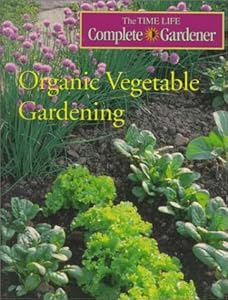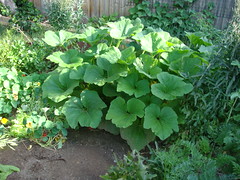| Cover via Amazon |
Beans, melons, tomatoes, squashes and cucumbers are all easy vegetables to grow in an organic garden. Conditions need to be right if you’re choosing to garden organically. Be sure to prepare the soil properly with composts and other natural fertilizing methods such as waste from plant-eating animals. (Check our archives for lots of great composting tips and how-tos.)
Using the fundamental basics of organic vegetable gardening produces an abundance of benefits, including helping the soil retain water and nutrients more effectively. It also helps the soil use its natural microbiological activity to grow healthy and abundant plants and helps the vegetables to be less susceptible to stress.
Also, be sure that your organic vegetable garden will receive the right amount of sun and practice rotating plants from season to season. Check out the resources on this blog or at http://www.newholisticliving.com/sustainablegardening.html or your favorite nursery to discover the best method of rotating plants for the most effective yield.
Organic vegetable gardening can be incredibly rewarding. If you’re used to purchasing vegetables from a supermarket, you’ll be surprised and delighted at the extra flavor and zing that organically grown vegetables provide.
| Organic vegetable garden with squash plants (Photo credit: louisa_catlover) |
Organic vegetable gardening takes a little more planning and preparation than a conventional vegetable garden, but the rewards are enormous. Vegetables rich in vitamins and minerals and harvested at the exact moment they’re at their maximum potential will give you extra health benefits and self-satisfaction.
Even the exercise and fresh air you’ll get when preparing, planting and tending to your organic vegetable garden will be satisfying and fulfilling. Try organic vegetable gardening for an experience you’ll want to continue throughout your life.



No comments:
Post a Comment